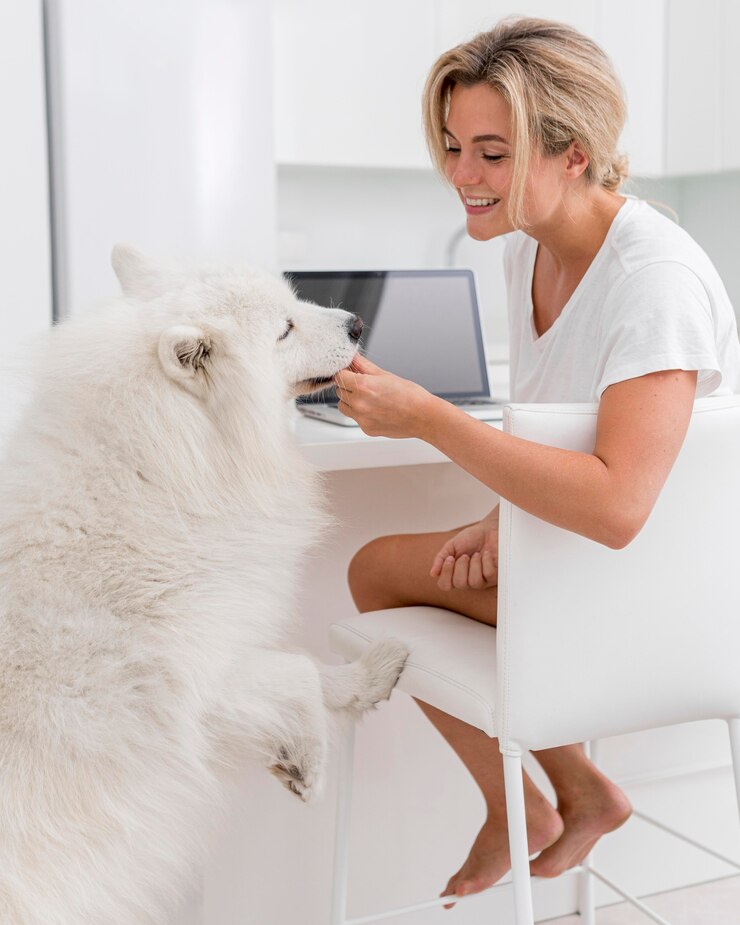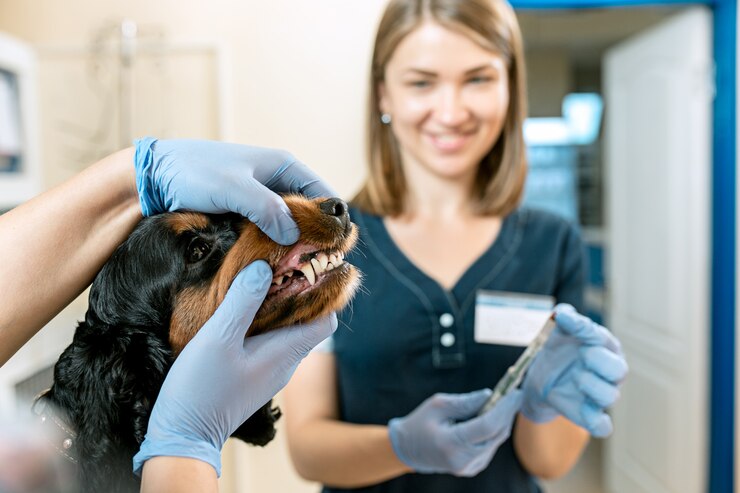Importance of Home Dental Care for Pets
Pet oral care is a crucial aspect of overall health, preventing dental disease and related complications. Plaque and tartar accumulation can lead to periodontal disease, causing pain, tooth loss, and systemic infections affecting the heart, liver, and kidneys. Implementing effective home dental care options helps reduce veterinary dentistry interventions and promotes long-term oral hygiene.
Effective Home Dental Care Methods
Tooth Brushing: The Gold Standard
Tooth brushing remains the most effective method for removing dental plaque and preventing tartar buildup. A soft-bristled toothbrush and pet-safe toothpaste, such as PetSmile toothpaste (approved by the Veterinary Oral Health Council (VOHC)), ensure safety and efficiency. Follow these guidelines:
- Use a soft-bristled toothbrush or a finger brush.
- Apply pet-safe toothpaste free of fluoride and foaming agents.
- Brush at a 45-degree angle to clean the gingival sulcus.
- Use a side-to-side brushing motion for thorough plaque removal.
- Gradually introduce brushing to reduce resistance.
- Perform daily brushing or at least every other day.
Dental Wipes: Alternative for Reluctant Pets
For pets resistant to brushing, dental wipes offer an alternative method for mechanical plaque removal. Products such as DentAcetic dental wipes (Dechra) and Maxi/Guard Oral Cleansing Gel (Addison Biologic Laboratory) contain zinc ascorbate and sodium hexametaphosphate (SHMP), aiding plaque reduction and oral malodor control.
Dental Chews and Treats
Chewing provides mechanical plaque removal, making VOHC-approved dental chews beneficial in home care routines. Effective options include:
- C.E.T. HEXtra dog chews (Virbac) – Contain chlorhexidine for antimicrobial benefits.
- C.E.T. VeggieDent chews (Virbac) – Promote gingival health while being hypoallergenic.
- OraVet (Merial) – Features essential oils and polyphosphates for nonmechanical plaque control.
- Greenies and Dentastix – Encourage natural chewing action to reduce plaque.
However, always monitor pets while chewing to prevent a choking hazard or tooth fractures caused by excessively hard treats.
Dental Diets for Oral Health
Certain dental diets are formulated to promote oral hygiene through mechanical plaque removal and chemical action. Prescription Diet t/d (Hill’s Pet Nutrition) and Royal Canin Dental Diet incorporate calcium peroxide (Calprox) and polyphosphates to limit tartar buildup.
Water Additives and Oral Rinses
Water additives and oral rinses provide nonmechanical plaque control by reducing bacterial biofilm formation. Recommended products include:
- Vetradent (Dechra) – Contains soluble zinc salts for antibacterial action.
- Chlorhexidine-based rinses (e.g., Clenz-a-dent, Hexadent) – Combat oral bacteria and bad breath.
- Maxi/Guard Gel – Features zinc ascorbate for additional plaque prevention.
Although effective, some pets may be reluctant to drink water with additives, so their usage should be monitored.
Dental Sealants for Long-Term Protection
Veterinary dental sealants like SANOS dental sealant (AllAccem) provide a barrier against plaque and tartar formation, extending the effects of professional cleanings. Though primarily applied by veterinarians, this treatment complements home dental care efforts.
Recognizing Dental Issues in Pets

Regular monitoring of pet oral health is essential. Signs of dental disease include:
- Bad breath (halitosis)
- Red or swollen gums
- Visible tartar or plaque buildup
- Excessive drooling
- Difficulty eating
- Tooth fractures or mobility
Early intervention prevents progression to severe periodontal disease, tooth resorption, or systemic health complications like heart disease and diabetes.
Veterinary Dentistry and Professional Care
While home dental care is vital, periodic professional dental cleanings remain necessary. Veterinary dentistry procedures include:
- Comprehensive Oral Health Assessment and Treatment (COHAT)
- Scaling and polishing
- Dental x-rays to detect underlying issues
- Tooth extractions for severely damaged teeth
- Oral surgery when necessary
The VOHC Accepted Seal ensures that recommended products meet strict efficacy standards, providing pet owners with confidence in their choices.
Conclusion
Maintaining optimal dental home care for pets involves a combination of tooth brushing, dental chews, dental diets, oral rinses, and routine veterinary checkups. By implementing a consistent oral hygiene routine and utilizing VOHC-approved products, pet owners can prevent periodontal disease, minimize the need for tooth extractions, and enhance their pet’s overall well-being.
